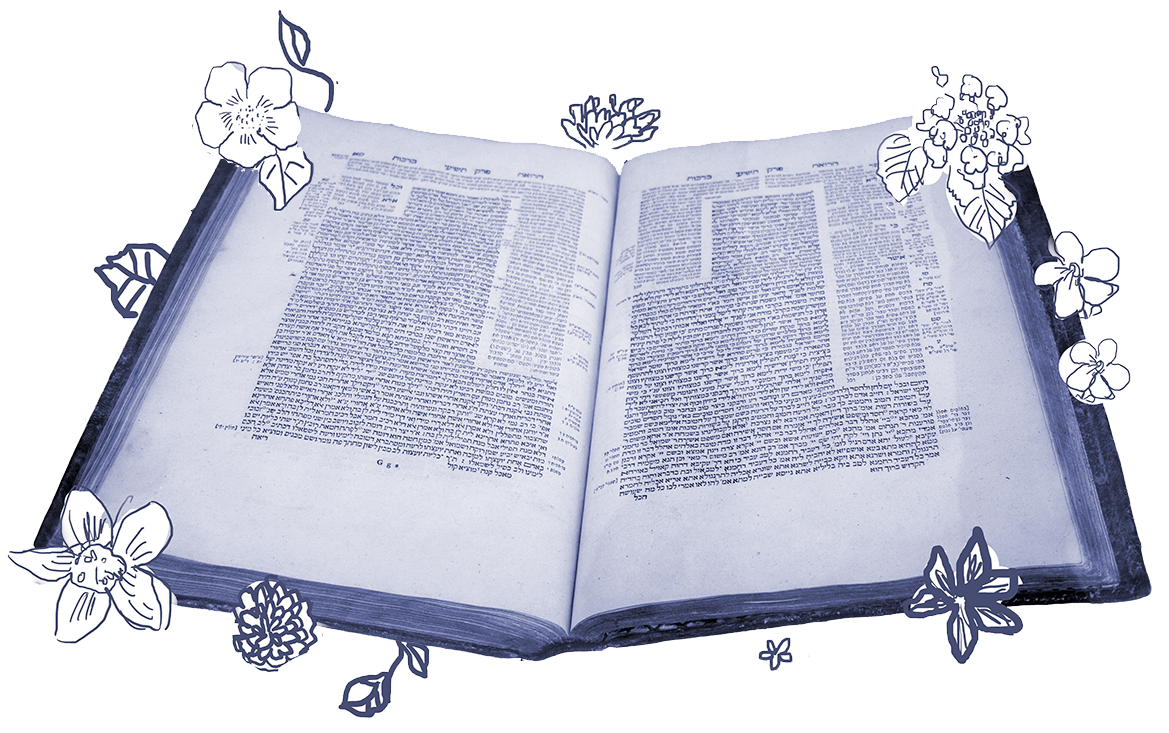In a chapter that has focused on the laws of inheritance, the Talmud turns today to a discussion about the Israelites’ inheritance of the land of Israel. We learn the following in a beraita:
Rabbi Yoshiya says: The land of Israel was divided among those who left Egypt, as it is stated: “According to the names of the tribes of their fathers they shall inherit” (Numbers 26:55).
Rabbi Yonatan says: The land of Israel was divided among those who entered Eretz Yisrael, as it is stated: “Unto these the land shall be divided for an inheritance” (Numbers 26:53).
Numbers 26 reports the results of a census that took place near the end of the Israelites’ 40-year journey through the desert. Knowing how many Israelite families would enter the land is a key piece of information needed to divide the land amongst them. The challenge is that there are two verses that describe the process and they say different things. Rabbi Yoshiya roots his opinion in verse 55, which states that that the land would be apportioned to “their fathers ” — i.e. the previous generation, the one that left Egypt. Rabbi Yonatan turns to verse 53, which states that the land would be divided among “these” — meaning those who were counted directly in the census, the same people that would be entering the land.
Seeking to resolve the tension between the two, Rabbi Shimon ben Elazar gives us a third option:
Eretz Yisrael was divided to these and to those, so as to uphold these two verses.
According to Rabbi Shimon ben Elazar, both verses are correct: Each of the families that left Egypt inherited a share of the land and each family that entered the land did as well. Since the generation that left Egypt had passed (with a few exceptions) before the Israelites settled in Israel, this suggests that the portions allotted to them were divided amongst their heirs, who also acquired land they received directly.
The beraita goes on to report that there are two particular groups of people who, although they did leave Egypt, did not receive a share of the land. The first are the 12 spies who were sent to investigate the land of Israel before the Israelites took it. Of the 12, only Yehoshua and Caleb return with faith that God will make good on the promise of the covenant and ensure that the Israelites will successfully settle the land. The remaining ten return with a fearful report about the inhabitants of the land, which sows doubt among the Israelites that they will be able to conquer the land. As a consequence, the ten spies fall victim to a plague. Numbers 14:38 states: “Only Yehoshua ben Nun and Caleb ben Yefuneh lived from among those men who went to scout the land.”
In his commentary on the Talmud, Rashbam makes reference to a midrashic reading of this verse, which suggests that when the Torah says that Yehoshua and Caleb “lived,” it means they sustained themselves from the other ten. Based on this, the Gemara concludes:
Joshua and Caleb took (all of the spies’) portions.
The second group that did not receive a portion of the land was those who stood with Korach when he led a rebellion against Moses. Like the ten spies, Korach and his supporters do not survive; they are swallowed up by the earth as punishment. The biblical evidence that their punishment included forfeiture of their portion of the land is found in the plea of the daughters of Zelophehad: “Our father died in the wilderness. He was not one of the Korach’s faction, which banded together against God, but died for his own sin; and he has left no sons … Let not our father’s name be lost to his clan just because he had no son! Give us a holding among our father’s kinsmen!” (Numbers 27:3-4) If they are denied their inheritance, claim the daughters, their father will suffer the fate of those who participated in Korach’s rebellion, a punishment he does not deserve because he did not take part in it. This implies that Korach and his followers were stripped of their portions of the land of Israel.
According to Rabbi Yonatan and Rabbi Shimon ben Elazar, the descendants of these two groups have a claim to a portion of the land as part of the generation that entered it. But if Rabbi Yoshiya is right that the land was divided up solely based upon those who left Egypt, they do not. That would be a particularly harsh decree and would leave them destitute. But the Gemara suggests that might not have been what actually happened.
Their sons took (portions of the land) in the merit of their paternal grandfathers and in the merit of their maternal grandfathers.
It’s a troubling notion that children are punished for the sins of their parents. It’s comforting that the Gemara seeks to provide the descendents of the spies and of the rebellion with a measure of redemption.
Read all of Bava Batra 117 on Sefaria.
This piece originally appeared in a My Jewish Learning Daf Yomi email newsletter sent on October 20, 2024. If you are interested in receiving the newsletter, sign up here.
With your help, My Jewish Learning can provide endless opportunities for learning, connection and discovery.



